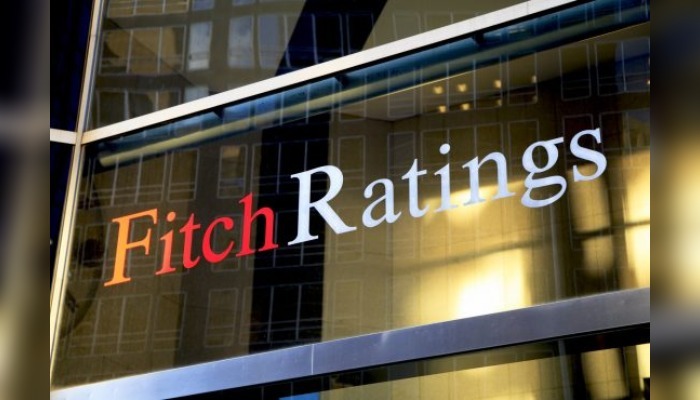Global credit rating agency Fitch has revised Nigeria’s long-term foreign-currency issuer default rating (IDR) outlook from Negative to Stable, upgrading the country’s rating from ‘B-’ to ‘B’. The IDR reflects an entity’s vulnerability to default on financial obligations, including distressed debt exchanges.
In a statement released on Friday, Fitch said the decision was driven by renewed confidence in Nigeria’s policy direction, following the implementation of significant economic reforms since June 2023.
“The upgrade reflects increased confidence in the government’s broad commitment to policy reforms implemented since its move to orthodox economic policies in June 2023, including exchange rate liberalisation, monetary policy tightening and steps to end deficit monetisation and remove fuel subsidies,” Fitch said.
These reforms, according to Fitch, have improved policy coherence and credibility, helping to reduce economic distortions and short-term risks to macroeconomic stability.
“These have improved policy coherence and credibility and reduced economic distortions and near-term risks to macroeconomic stability, enhancing resilience in the context of persistent domestic challenges and heightened external risks.”
Policy Outlook and Inflation Projections
Fitch expects Nigeria’s current macroeconomic stance to support a gradual decline in inflation and enhance the functionality of the foreign exchange (FX) market, even though inflation rates will likely remain high compared to peer economies.
“The stable outlook reflects Fitch’s expectation that the macroeconomic policy stance will support the move to lower inflation and sustain improvements in the foreign exchange (FX) market’s operation, though it will likely remain much higher than rating peers.”
The agency also pointed to continued reduction in external vulnerabilities and the formalisation of FX activity as positive developments. Recent moves by the Central Bank of Nigeria (CBN), including the launch of an electronic FX matching platform and a new FX code, are seen as steps toward greater transparency and stability.
“Greater formalisation of FX activity including the Central Bank of Nigeria’s (CBN) recent introduction of an electronic FX matching platform and a new FX code to enhance transparency and efficiency, along with monetary policy tightening, has led to a greater rise in FX liquidity and general stability in the FX market after a 40% depreciation in 2024, closing the spread between the official and parallel exchange rates.”
FX inflows through official and autonomous channels surged by 89% in Q4 2024, compared to just 8% in Q4 2023. Fitch anticipates modest depreciation in the short term but expects improved exchange rate stability.
The CBN has also adopted a tighter monetary policy to combat inflation, raising policy rates to 27.5%—an 875 basis point increase since February 2024.
“The CBN has tightened monetary conditions through a combination of policy rate hikes to 27.5% (up 875bp since February 2024) and use of prudential and operational tools such as open market operations (at rates closely aligned to the MPR) to strengthen monetary policy transmission after years of financial repression.”
Fitch forecasts Nigeria’s inflation to average 22% in 2025—significantly higher than the 4.3% median for ‘B’ rated countries—and to decline to 20% in 2026.
“We project inflation, which hit 23.2 percent year-on-year in February under the recently rebased consumer price index (CPI), to average 22% in 2025 (‘B’ median 4.3%) and 20% in 2026.”
However, the agency warned against premature loosening of monetary policy, which could undermine recent gains.
External Reserves and Current Account Performance
The country’s external reserves have improved significantly, rising from a low of $32 billion in mid-2024 to $41 billion by year-end, before falling slightly to $38 billion due to increased debt service obligations.
“Gross official reserves reached $41 billion by the end of 2024, recovering from a low of $32 billion in mid-2024, but later declined to $38 billion due to increased debt service payments.”
Although gross reserves are high, Fitch highlighted a lack of clarity in their composition. The CBN recently estimated net reserves at $23 billion at end-2024, up from $4 billion the previous year.
“There is a lack of detail on the composition of reserves amid recent indications by the central bank that place net reserves at USD23 billion at end-2024, up from about USD4 billion at end-2023.”
FX swaps now make up about 14% of gross reserves, down from 25% in November 2024, as the CBN works to reduce FX liabilities.
Fitch also expects Nigeria’s current account surplus—estimated at 6.6% of GDP in 2024—to average 3.3% of GDP over 2025 and 2026.
Oil Sector Outlook and Trade Risks
Nigeria’s oil sector is poised for growth, with the Dangote refinery expected to increase capacity from 0.55 million barrels per day (mbpd) to 0.65 mbpd by Q2 2025. Crude oil production (excluding condensates) is also projected to rise.
“We expect crude oil production (excluding condensates) to increase in 2025-2026, averaging 1.43 mbpd, from 1.34 mbpd in 2024, helped by improved onshore surveillance and increased investments by local oil companies.”
However, Fitch noted that underinvestment and outages continue to cap production below pre-2019 levels.
On the international trade front, the agency downplayed the impact of U.S. tariffs, citing Nigeria’s oil-related exports—which make up 92% of total U.S.-bound exports—as largely unaffected.
“The impact of US tariffs on Nigeria’s trade position with the US will be limited, amid the exclusion of oil-related exports, which accounted for about 92 percent of total exports (nearly 2 percent of GDP) to the US in 2023.”
Still, Fitch cautioned that falling oil prices pose a more significant risk to Nigeria’s fiscal and external positions.
“Lower oil prices pose a bigger risk as they would weaken external buffers and fiscal metrics and test the new policy framework.”
Despite these risks, Fitch concluded that Nigeria’s greater policy flexibility leaves it better equipped to weather economic shocks.

Leave a Reply